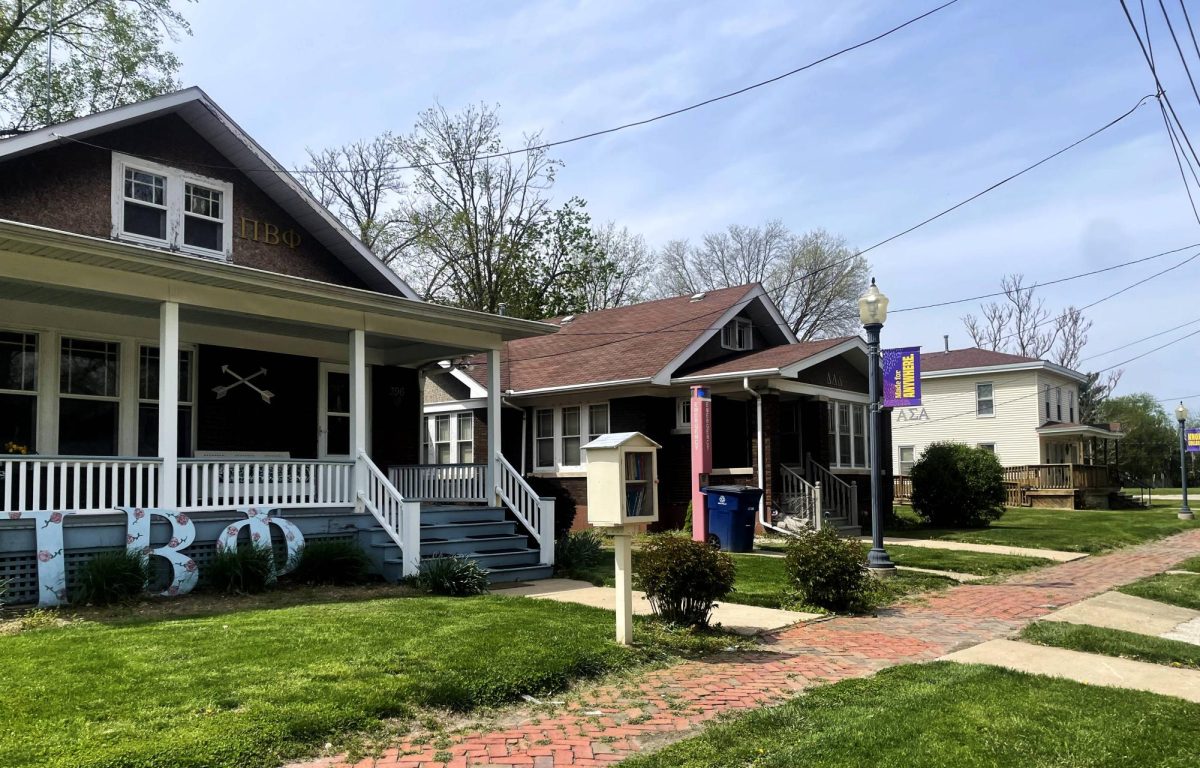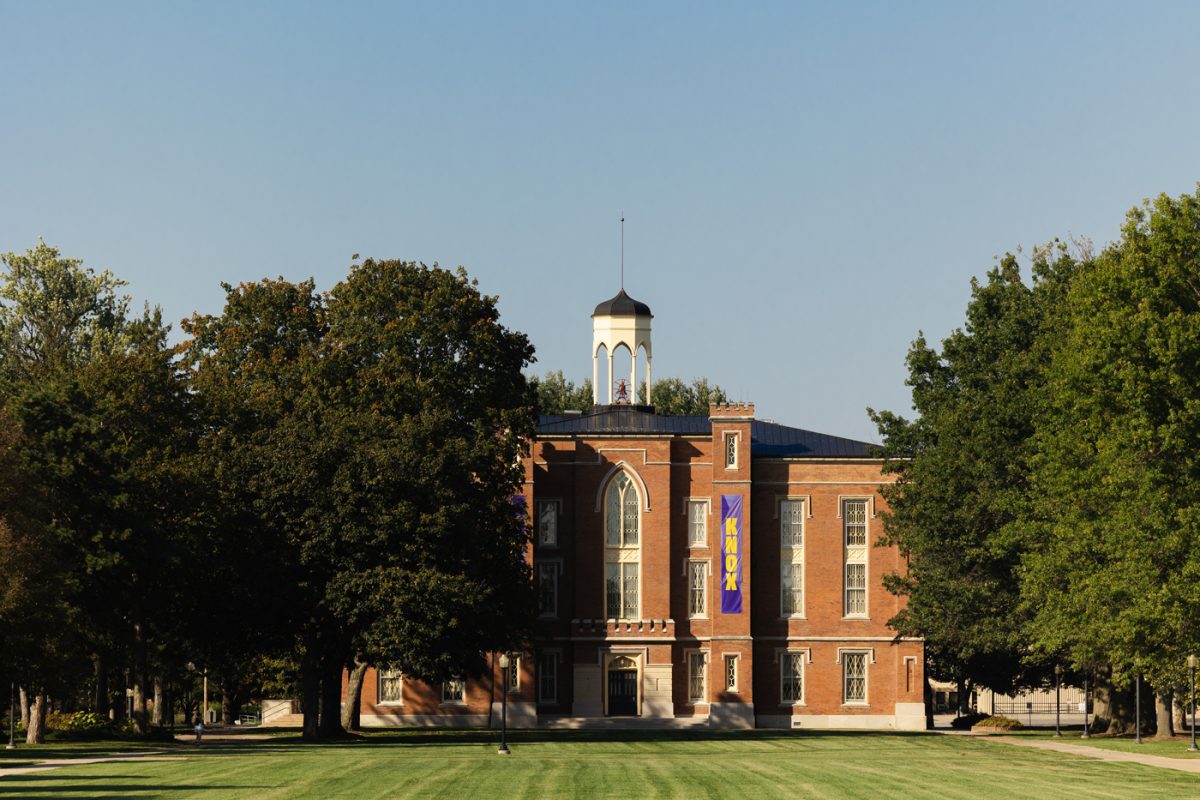On S Academy St at the west edge of campus, sometimes known as ‘Sorority Lane’ to students, four houses bear chapter letters on their exterior walls. However, none of the sororities on Knox College’s campus are residential chapters, meaning sorority members cannot live in their house.
In contrast, the five houses belonging to the fraternity chapters are mostly scattered across the northwest side of campus. Looming above passing students, the fraternity houses are residential buildings, most of which can house 20 or more students.
As far as Assistant Dean for Campus Life Jake McLean knows, none of the sororities at Knox have ever been residential. One concern with the sorority houses now is the size: most only have one or two bedrooms, limiting the number of individuals that could reside there.
“I think some of that has to do with the insurance, risk management things, and then just the general, ‘who’s gonna live where?’,” McLean said.
Each chapter, whether it’s a fraternity or sorority, is under a lease agreement with Knox College, who owns each of the houses. Each lease agreement looks a little different according to each chapter’s negotiations in forming the agreement. As nationally affiliated chapters, they must follow the housing and risk management bylaws of their respective national organizations, which accounts for some of the differences in lease agreements.
“Most organizations have a housing corporation. That housing corporation, usually made up of alums, have worked with the college admin, not campus life, to make up those leases,” Mclean said. “Some of them have been in like auto-renewal mode for a long time, some of them are newer, and so it just kind of depends chapter to chapter.”
In the case of the Beta Theta Pi (BTP) chapter, a fire destroyed their house about 10 years ago. After a poor reconstruction of the house, it was determined that renovations would be needed to repair the house completely, according to senior and chapter president Liam Gallagher.
A majority of the funding for renovations came from fundraising, Gallagher said. The determination of who funds renovations like this can be found in the individual lease agreements.
Determinations for repairs, renovations, cosmetic updates, etc. come from yearly walkthroughs that college staff do with chapter presidents. According to McLean, in the past few years, the Kappa Kappa Gamma (KKG) chapter was looking to make some minor repairs and cosmetic changes to their house during the summer.
“We worked collaboratively with their housing corporation and college staff to figure out where facility upkeep and improvements were captured in the lease agreement,” McLean said.
Now, the KKG chapter is experiencing more serious concerns with their house, namely their living room.
“Last year we had noticed that the living room floor had been concaving slightly when we would walk on it or dance…we used to have mini dance parties during chapter or siblinghood,” junior and chapter president Maddie Poetzinger said. “So Megan, our Operations Officer at the time, contacted our Housing Advisor to come and check it out. They ended up deeming the floor unstable and put the 15-person limit on it. We asked if we would be able to get another support beam installed and they said yes but it would have to come out of our chapter budget.”
As their chapter finances stand now, they cannot afford the cost of adding another support beam, and because the house is non-residential and owned by Knox College, their nationals are not involved in assisting with the repair.
If the chapter cannot safely stand in their living room, living in the house is naturally out of the question. The other options to become a residential sorority involve building a new house, or potentially moving into one of the other houses available on campus.
The fraternity chapter Sigma Nu recently approached college staff to inquire about finding new on-campus housing because their chapter was growing too large for members to live in the house they have now. Next academic year, the Sigma Nu chapter will move into the former Cooking House at 270 W Tompkins St, while that themed house will move into Sigma Nu’s former house.
“We could discuss chapter to chapter if that’s the direction people want to go. I think a well functioning, like a healthy fraternity-sorority life system, includes both fraternities and sororities being residential chapters,” McLean said.
As far as McLean can remember, when the subject of residential sororities has been brought up, sorority chapter members were uninterested. Yet, the disparities between the conditions of fraternity houses and sorority houses remains the same.
“I think in terms of FSL housing, it’s time for updates in general.” Poetzinger said. “I know our house is not the only one that has issues. Most of the houses are not accessible and pretty out of date in general. I think more attention is needed in FSL housing because it’s important for us to have positive experiences in the places where we spend most of our time as a group.”








